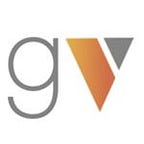A Software Engineer’s Journey to Finding the Right Career Path
By: Adithya Venkatarao, Associate Software Engineer
Figuring out what you want to do with your career can be one of the most challenging things to do and, unfortunately, there’s no one way to get to that answer. Below I’ve highlighted some of the challenges that I faced when trying to figure this out for myself to provide some perspective and encouragement for anyone else navigating a similar dilemma
Uncertain beginnings
Prior to my senior year of high school, I had admittedly not given much thought to what I wanted to do with my life. It was a daunting task to plan out the rest of my life when, up until that point, I had lived it with a clearly defined set of tasks to finish, such as homework, chores, and extracurricular activities. When I had to make my own decisions on how to spend my free time, I was content trying out new things to do and sticking with the ones that I enjoyed, including playing video games with beautiful worlds and compelling narratives, watching anime, and playing sports.
When thinking about career prospects, it was difficult to filter out professions because many of them sounded like interesting and fulfilling lines of work; however, working with graphics and video games appealed to me as a potential career path. Admittedly, I wasn’t very confident that I was choosing the right path forward and I was well aware of the stories of people who had chosen a career path that they regretted later on. But I was excited to take a leap of faith, so I joined the University of Waterloo for Computer Science with the hopes of working in software.
Am I successful yet?
The first two semesters of university were some of the toughest. I struggled to keep up with the rapid pace of learning while coping with the challenges of living alone for the first time. When my first co-op term arrived, I managed to secure an opportunity at the university’s incubator to aid a number of startups as a web developer. Though the experience was invaluable, I found it difficult to not feel a bit of dissatisfaction and compare myself to some of my peers who were getting internships at more reputable companies. I was sold by the “Cali or bust” mindset that getting a job with a high salary, typically located in a large urban center like Silicon Valley, was the line for success, and I felt woefully behind others in getting to that goal.
With a reinvigorated sense of desire to be “successful,” I spent about a year and a half exploring web technologies and working on related side projects. My efforts paid off, as I was able to find internships for a couple of local software companies doing a mixture of front-end and full-stack development.
Finally, I secured a position at a well-known software company based in the U.S. for my fourth internship. I made it! Or so I thought. Though I knew that I was moving forward in my career, I was coming to the realization that I was still no closer to figuring out what I was truly passionate about. Creating web user interfaces was somewhat interesting and came with its own set of challenges but I did not feel the spark that I would feel whenever I was doing something I genuinely enjoyed. I had spent so much of my time doing school work, creating side projects to display on my resume, and grinding leetcode that I hadn’t allocated enough time to figure out what I enjoyed doing. Ultimately, chasing money and prestige devoid of a clear purpose was not the right benchmark of success for me.
“Sometimes we must lose ourselves to find ourselves”
As I entered my final semester of sophomore year, it became abundantly clear that aside from web development, I was ignorant of many things within the computer science domain and I needed to step outside of my comfort zone. I decided to dedicate time toward exploring new topics such as machine learning, quantum computing, and human-computer interaction. Throughout this process, I felt an abundance of frustration and self-doubt because most of the things that I tried did not seem like something I wanted to do for the foreseeable future.
As I approached the end of my third year, however, I began to explore computer graphics, operating systems, and high-performance computation and discovered that I thoroughly enjoyed working on efficient complex systems. This led me to pursue opportunities working lower down in the software stack where control over resource management and performance was better. I spent my final internships doing low-level application programming, and even had the opportunity to work on a Java virtual machine as a VM developer!
What now?
For my first full-time position right out of university, I joined Veeva as a backend developer, where I have had the opportunity to continue working on creating performant applications for the consumer products and goods industry.
Looking back, I feel like I’m in a better spot now than I ever was. Veeva has been extremely supportive in letting me work in areas of the software that I’m interested in and exploring topics of particular interest to me. I’ve been able to attend two SIGGRAPH events and read books on computer graphics and high-performance computing using the 2% learning and development stipend provided by Veeva. Looking forward, I’m excited to continue learning and doing things I genuinely enjoy.
The views and opinions expressed in this article are those of the author and do not necessarily reflect the official policy or position of Veeva.
